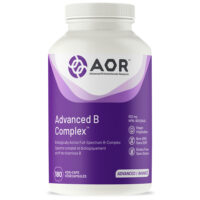Most of us get heartburn on occasion. It can be very unpleasant, but it’s usually nothing to worry about. But if you get it often, it could be caused by acid reflux disease.
Acid reflux is officially known as Gastroesophageal Reflux Disease, or GERD. It is defined as chronic abnormal reflux of stomach acid into the esophagus, and is caused by the dysfunction of the lower esophageal sphincter (LES). This is a small ring of muscle at the opening of the stomach. When it doesn’t remain closed as much as it should, it allows acid to come back up out of the stomach and into the esophagus. This can erode the lining of the esophagus, causing ulcers to form. It can also increase the likelihood of esophageal cancer.
If you have the following symptoms, you could have acid reflux:
* Frequent, persistent heartburn – This is the most recognizable symptom, as well as the most common. Most acid reflux sufferers have heartburn several times a month or more. But some do not have heartburn at all.
* Regurgitation of acid – Those with acid reflux often report regurgitation of acid into the back of the throat, and sometimes all the way into the mouth. It may or may not be accompanied by food from the stomach.
* Persistent cough – Some acid reflux sufferers develop a dry cough. This usually occurs when certain nerves in the lower esophagus are stimulated by the refluxed acid. But it can also be caused by acid reaching the throat and irritating it.
* Choking sensation – Acid reflux sufferers sometimes feel like there is a piece of food stuck in their throats, when in reality there is not.
* Wheezing or hoarseness – This is caused by the damage done to the throat and esophagus. It is particularly common in the morning. Acid reflux can aggravate existing asthma, and in rare cases it has been known to cause it.
Treatment of Acid Reflux
If you have some of the symptoms above, you may need to see a doctor. If you are diagnosed with acid reflux, there are a number of medications (known as proton pump inhibitors) that your doctor could try. There are herbal remedies that can help as well. But there are also some lifestyle changes that can provide relief. These include:
* Avoiding alcohol and tobacco – Both of these can aggravate the symptoms of acid reflux. Alcohol causes the stomach to produce more acid and relaxes the LES. Smoking also has these effects, and it also reduces the production of saliva, which provides a natural defense against refluxed acid.
* Losing weight – Being overweight can make acid reflux worse. This is because of increased pressure on the abdomen.
* Avoiding certain foods – Foods that aggravate acid reflux include fried or fatty foods, citrus fruits, tomatoes, chocolate, and anything spicy. It’s also a good idea to eat smaller meals, as large meals can increase abdominal pressure.
* Elevating the head of your bed – Acid reflux often worsens at night because it’s easier for acid to escape the stomach when you’re lying flat. Raising the head of your bed can help. Sitting up for a few hours after a meal is also helpful.
Acid reflux can be painful, and it can lead to other health problems. The good news is that it is treatable. With medication and a few lifestyle modifications, most sufferers have a major reduction in symptoms.







